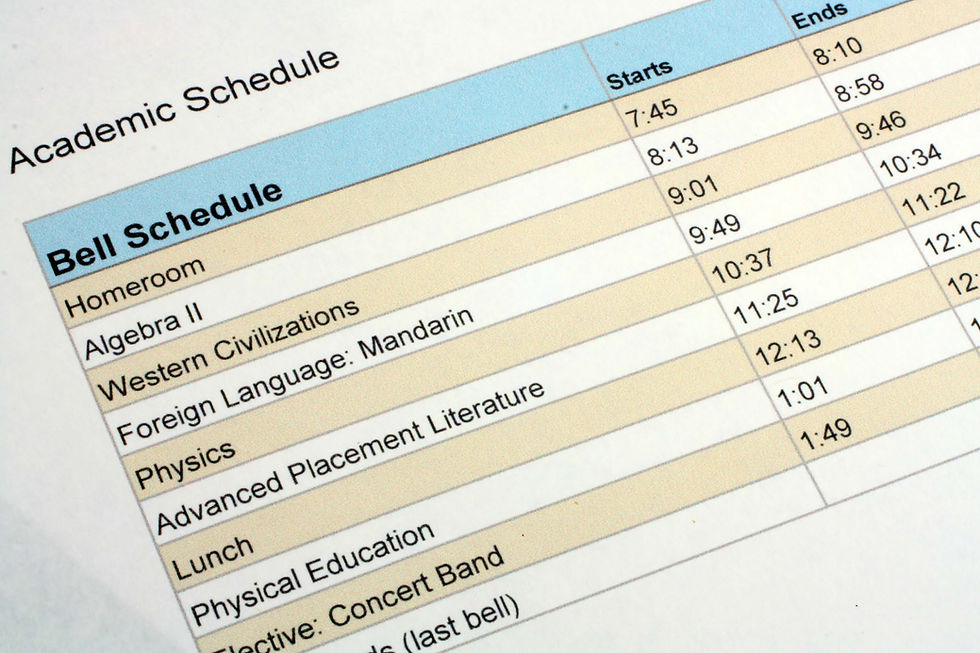Unpredictability is the Reality
- Alison Merzel

- Feb 1, 2022
- 3 min read
As admissions decisions continue to get released, there is always chatter about why one student got into a school and another didn't. "He had a lower GPA than she did." "She had much higher test scores." "He barely has any extra-curricular activities."
Here is what you need to know:
College admissions is often more of an art than a science. While some schools practice what is referred to as "admissions by the numbers," the schools you are chatting about are typically those that practice "holistic admissions."
In the case of the former, it is more predictable, as a set of required high school courses, a minimum threshold GPA, and possibly, a minimum SAT or ACT score may dictate an admit or deny decision.
With the schools that practice "holistic admissions," GPA and test scores are essentially used as filters to determine who is qualified to succeed academically at the institution, and then numerous other criteria are used to make an admissions decision. This is why you will hear admissions officers from the highly selective universities share that the majority of students they deny are absolutely qualified to be students at their schools, at least from an academic standpoint.
Remember that you don't have the full picture. You may think you know another student's academic qualifications, but you haven't seen their application and you don't know what they have to offer that school might be looking for. It doesn't do any good to compare your child to any other student. Maybe something in their essay resonated with an admissions officer. Maybe the letter of recommendation shared compelling information about the student. Maybe they are interested in studying English and your child expressed interest in business, a much more popular and competitive major. Maybe they have an unusual talent or hobby that you know nothing about, and the university sees value in having that person in their campus community.
What we do know is that college admissions is becoming less and less predictable. The discussion forum for my professional association, IECA, is blowing up with posts by consultants lamenting their disappointment, as students are being rejected at schools where they previously were likely to earn admission.
For context, a colleague who just spoke with the Director of Admissions at the University of Maryland shared that they went from 32,000 applicants two years ago to 55,000 this year! Well, guess what? In August 2020, UMD joined the Common Application for the first time, giving thousands of applicants the chance to add their school's application to the list with a click of a button. The University of Virginia admissions blog has shared that they have received a record 50,813 applicants, with over 31,000 applications coming in the Early Action round. They are looking to bring in approximately 4,000 students! Do the math.
The fact of the matter is that the rise in test-optional admissions (along with other factors, like the growth of the Common Application and a significant increase in marketing spent by colleges and universities since the start of the pandemic) has increased the application volume at many colleges and universities and made it that much more competitive to get a spot.
I share this not to stress you out, but to help you and your student understand that a rejection is not personal. The admissions teams are making the best decisions they can at the time they read the applications, based on the enrollment goals and priorities that have been set by the leadership of the institution. As you have heard many times, "When one door closes another opens." While hearing "no" really stings, it just means that the school wasn't meant to be and it is time to pursue another option.
While it may not seem "fair" that one student gets a spot and another doesn't, it unfortunately isn't a "fair" process. It would be amazing if there was more predictability and transparency around these decisions, but that realistically isn't going to be the case for many of these schools. They aren't going to share how the secret sauce is made. So, help your kids acknowledge their peers' successes with grace and accept their own rejections with dignity. Remind them that these decisions do not define their worth nor their potential. They will each find their place and have the opportunity to do great and be great wherever their journey takes them.



